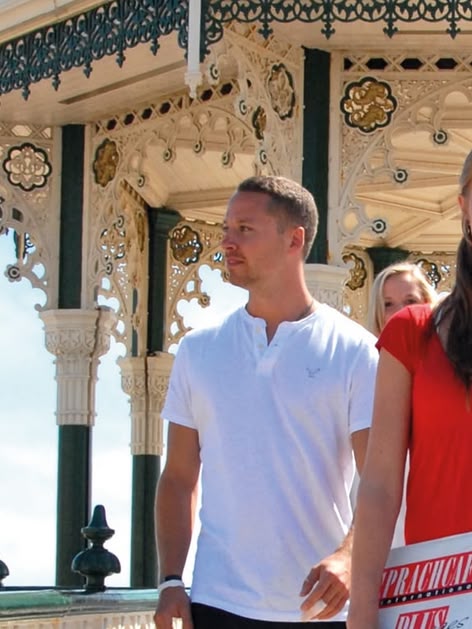Most Common, Rare, and Ancient English Surnames Explained

Below is a list of uncommon English surnames , and therefore those that stand out for their rarity:
- Sallow
Sallow is a surname derived from the medieval term for willow, which today is called "willow tree." This surname appears in records starting in 1841, and most Sallow families were registered in the United States, particularly in Ohio.
- Villan
This surname appears in the Domesday Book, the oldest land registry of the English kingdom, compiled by William the Conqueror in 1085-1086, with Hugo de Villana. The surname Villan, which may have once referred to vassals or serfs, is also found later in various forms, such as Villanus, Vilein, le Vileyn, Villayn, Villane, Viland, and Vileyn.
- Fernsby
The surname Fernsby originally referred to someone who lived near ferns. The name is in fact composed of "fern," meaning "fern," and the suffix -by of Danish origin, which the Vikings used to indicate a settlement.
- Relish
The surname Relish was first recorded as a word in the 14th century, when it referred to a flavor. It comes from the archaic French "relaisse," which meant something left behind, something that remained. It's unclear how Relish became a surname, but in the United Kingdom, it appears in 19th-century censuses.
- Miracle
The surname Miracle has Celtic origins and derives from the name Meuric, a Welsh form of Maurice, and the Latin name Mauritius. Currently, most people with the surname Miracle reside in America, especially the United States and Canada.
- Dankworth
The curious surname Dankworth is composed of two terms: the diminutive of the German name Tancred and the Anglo-Saxon suffix -worth, which meant a farm. It is therefore likely that the surname meant "Tankred's farm."

Experience unique group trips, just minutes from the coast and St. Julian’s.
Common English Family Names: Origins and Meanings
Have you ever wondered what the most common English surname is? If you answered Smith, you're right. The surname Smith is borne by over 650,000 people, followed by Jones, Taylor, and other surnames you've probably heard somewhere, perhaps during one of the language study trips we organized at Sprachcaffe.
There are various statistics online that show the prevalence of a surname by geographical area, and the ones listed below are the most common surnames in the United Kingdom.
- Smith
As previously mentioned, the surname Smith is the most common throughout the United Kingdom, especially in England. It likely derives from the profession of blacksmith, which was very common in the past and therefore easily found in every village.
- Jones
Jones is the second most common surname in the United Kingdom. It is a patronymic, meaning a surname derived from the father's given name, which in this case is John, Jone, or Johan. Its original form, Joneson, has been replaced by the more modern Johnson (and the still-existing variant Joynson). It is a surname especially common among Welsh people, due to the widespread use of patronymics in the 16th century and the widespread use of the name John throughout the country.
- Taylor
This surname, like Smith, also derives from an occupation: the "tailor" (or "tailleur" in French), meaning the tailor. Over the years, various variants have developed, such as Taillar, Talur, Tayllour, Tayler, Taliur, and Taylour, as reported in the census called The Hundred Rolls of 1273.
- Brown
The surname Brown, very common among Scots, referred to the descendants of Brun. It was a fairly common given name in Scotland, deriving from the ancient term "brun," used to describe someone with brown or dark red hair.
- Wilson
Again, the surname Wilson derives from the father's name and means "the son of Will (William)." The meaning of the name William, however, is of Germanic origin and comes from "willahelm," which literally means "willing man with a helmet," and therefore "man protected by the will."
- Davies
Particularly common in Wales, Davies means "son of Davie, Davey or Davy".
- Johnson
Just like Jones, Johnson also originated as a patronymic to indicate the son of a man named John.
- Evans
Like many other surnames, Evans also originates from a given name. In this case, the name is Evan, very common in Wales, and the surname Evans refers to Evan's descendants.
- Thompson
The surname Thompson means "son of Thom," where Thom was an abbreviation of the name Thomas.
- Roberts
Once again, it's a patronymic, meaning "the son of Robert." The name Robert, of Germanic origin, gave rise to the diminutive Robin, which, in turn, led to the famous surname Robinson.
- White
The surname White anciently referred to a person with fair skin. Some sources, however, suggest that the origins of this surname lie in the word "hwita," which meant a blacksmith or gunsmith.
Strange and Peculiar English Surnames

In addition to the famous and widespread surnames in England, like the ones we saw above, there are also several unusual and less common surnames. Some strange and amusing English surnames , for example, are:
- Birdwhistle
Surname given to those who had a settlement near birds' nests.
- Winterbottom
The surname Winterbottom was initially reserved for farmers who lived in the valley during the winter and then moved their flocks to the higher ground during the summer, when the climate became more clement.
- Jelly
The term "jelly" literally means "jelly", and the surname derives from the given name Giles.
- Onion
The surname Onion, which literally means "onion", originates from the personal name Enion, which is especially common in Wales.
- Gotobed
The surname Gotobed, first recorded in 1269 as Gotobedde, means "go to bed." It was a surname given to people who owned a bed in the 12th century, a very rare occurrence at the time.
Noble and Ancient English Surnames

We've seen the most common and rarest surnames in the United Kingdom, the strange and unusual surnames, and now we just need to look at the ancient English surnames with noble origins.
Some of these surnames, in fact, may trace their origins back to noble and important English families, such as Astley and Byron. The first, Astley, comes from Baron Hastings, while the second, Byron, derives from Baron Byron. Other noble English surnames include:
- Capell, from the Duke of Essex;
- Clifford, from Baron Clifford of Chudleigh;
- Courtenay, from the Duke of Devon;
- Coventry, from the Duke of Coventry;
- Dormer, from Baron Dormer.





